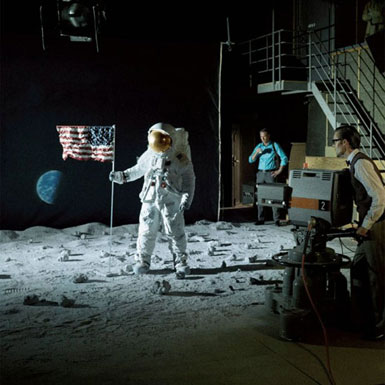Information has not saved us.
Free and plentiful though it now is, data still depends on us to process it. From Truthers to Birthers to Vaxxers, some of us choose the wrong info, ignore the right and mix up different threads to “prove” some deeply held belief that is utter bullshit. No recruitment is necessary; people actively pursue these nonsensical ideas. Something’s amiss.
Why are there those among us who can’t make basic sense of things? Perhaps some of the entrenchment in ignorance is a response to the deluge of facts, but that’s probably not an explanation for so much wrongheadedness. The opening of Quassim Cassam’s provocative Aeon essay, “Bad Thinkers,” a salvo aimed at the faltering intellectual character of conspiracists:
Meet Oliver. Like many of his friends, Oliver thinks he is an expert on 9/11. He spends much of his spare time looking at conspiracist websites and his research has convinced him that the terrorist attacks on New York and Washington, DC, of 11 September 2001 were an inside job. The aircraft impacts and resulting fires couldn’t have caused the Twin Towers of the World Trade Center to collapse. The only viable explanation, he maintains, is that government agents planted explosives in advance. He realises, of course, that the government blames Al-Qaeda for 9/11 but his predictable response is pure Mandy Rice-Davies: they would say that, wouldn’t they?
Polling evidence suggests that Oliver’s views about 9/11 are by no means unusual. Indeed, peculiar theories about all manner of things are now widespread. There are conspiracy theories about the spread of AIDS, the 1969 Moon landings, UFOs, and the assassination of JFK. Sometimes, conspiracy theories turn out to be right – Watergate really was a conspiracy – but mostly they are bunkum. They are in fact vivid illustrations of a striking truth about human beings: however intelligent and knowledgeable we might be in other ways, many of us still believe the strangest things. You can find people who believe they were abducted by aliens, that the Holocaust never happened, and that cancer can be cured by positive thinking. A 2009 Harris Poll found that between one‑fifth and one‑quarter of Americans believe in reincarnation, astrology and the existence of witches. You name it, and there is probably someone out there who believes it.
You realise, of course, that Oliver’s theory about 9/11 has little going for it, and this might make you wonder why he believes it. The question ‘Why does Oliver believe that 9/11 was an inside job?’ is just a version of a more general question posed by the US skeptic Michael Shermer: why do people believe weird things? The weirder the belief, the stranger it seems that someone can have it. Asking why people believe weird things isn’t like asking why they believe it’s raining as they look out of the window and see the rain pouring down. It’s obvious why people believe it’s raining when they have compelling evidence, but it’s far from obvious why Oliver believes that 9/11 was an inside job when he has access to compelling evidence that it wasn’t an inside job.
I want to argue for something which is controversial, although I believe that it is also intuitive and commonsensical. My claim is this: Oliver believes what he does because that is the kind of thinker he is or, to put it more bluntly, because there is something wrong with how he thinks. The problem with conspiracy theorists is not, as the US legal scholar Cass Sunstein argues, that they have little relevant information. The key to what they end up believing is how they interpret and respond to the vast quantities of relevant information at their disposal. I want to suggest that this is fundamentally a question of the way they are. Oliver isn’t mad (or at least, he needn’t be). Nevertheless, his beliefs about 9/11 are the result of the peculiarities of his intellectual constitution – in a word, of his intellectual character.•
Tags: Quassim Cassam

